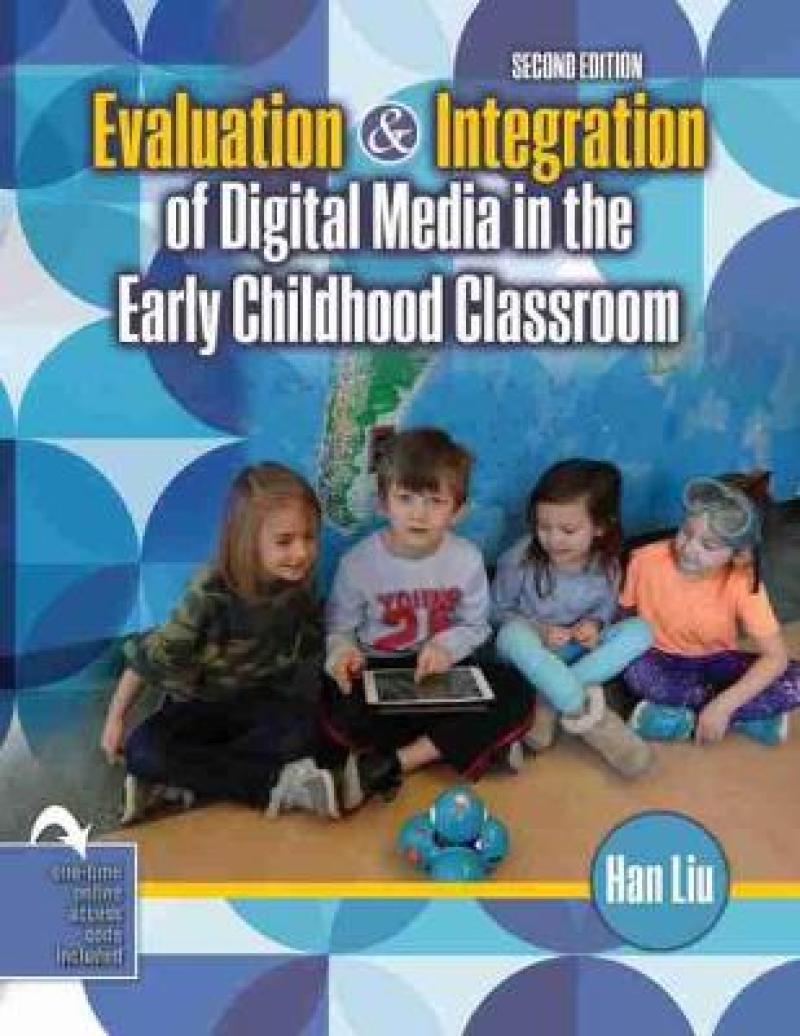As the open education movement has been blooming for more than a decade in PK-12 education, digital media for teaching and learning manifested in OERs (Open Educational Resources) have increased exponentially in quantity, variety, and more pedagogically sound designs along with emerging cutting-edge technology. Teachers in early childhood education integrate digital media on a daily basis for their classroom instruction and assigned student learning activities at home or in other digital environments. While celebrating the boundless immensity and easy accessibility of digital media, teachers are increasingly facing constant challenges in identifying high quality OERs for lesson planning and instruction. There is an imperative need to integrate digital media in the classroom following the developmentally appropriate principles for the vast majority of teachers in early childhood settings. Evaluation & Integration of Digital Media in the Early Childhood Classroom introduces the strategies and techniques in logical steps of OERs’ searching, curation, evaluation, and integration. At the instructional level, the book presents an evaluation-based ETACS model to demonstrate how to use digital media to engage learners, teach content, assess learning, create digital projects, and share learning results. Evaluation & Integration also covers popular topics and related online tools in digital learning environment management, digital curriculum management, STEM education, computational thinking, and coding instruction for young children.
Les mer
Introduces the strategies in logical steps of Open Educational Resources' searching, curation, evaluation, and integration. At the instructional level, the book presents an evaluation-based ETACS model to demonstrate how to use digital media to engage learners, teach content, assess learning, create digital projects, and share learning results.
Les mer
- Acknowledgment
- Chapter 1 Digital Media for Young Children
- Digital Media Literacy for Young Children
- Open Educational Resources (OERs)
- Creative Commons and Copyright of OERs
- OER (Digital Media) Providers
- Types of OERs
- Trends of Digital Media Development
- Chapter 2 Digital Tools for Teacher and Young Children
- Frequently Used Digital Tools for Teachers
- Digital Tools for Classroom Management and Indoor Activities
- Digital Tools for Young Children
- Digital Project Design for Young Children
- Digital Learning Environment Management Tools
- Chapter 3 Digital Media Searching Strategies
- General Search Engines
- Child Friendly Search Engines
- Comprehensive OER Websites as Search Engines
- Subject Specific OER Websites as Search Engines
- Video Hosting Websites as Search Engines
- Special OER Curation Websites as Search Engines
- Chapter 4 Digital Media Curation
- Digital Tools for OER Curation
- Organization of OERs
- School Librarian as OERs Curator
- Chapter 5 Digital Media Evaluation for Instruction
- Guidelines for Digital Media Evaluation
- Standards Aligned Digital Media
- Digital Media Evaluated by Professionals
- Evaluation of Technology Facilities in the Classroom
- Evaluation of School Technology Support Resources
- Digital Media Evaluation Rubrics for Specific Digital Media Formats
- Evaluation Rubric-01-Website
- Evaluation Rubric-02-Videos
- Evaluation Rubric-03-Game
- Evaluation Rubric-04-Quiz
- Evaluation Rubric-05-Interactive
- Evaluation Rubric-06-Audio
- Evaluation Rubric-07-Image
- Evaluation Rubric-08-Organizer
- Evaluation Rubric-09-Online Tools
- A Simplified Digital Media Evaluation Form
- Chapter 6 Digital Media Integration Strategies
- Planning Guidelines for Digital Media Integration
- Digital Media Adaptation and Manipulation
- Creating Digital Media by Teachers Themselves
- Differentiation with Digital Media
- Accommodation of Student Special Needs with Digital Media
- Chapter 7 Digital Media Integration and Instruction Modalities
- Blended Learning
- Flipped Classroom Model
- ETACS Lesson Model
- BYOD (Bring Your Own Devices)
- Sample Lesson Plans (see the following pages)
- Sample Flipped Classroom Lesson for Young Children
- Sample ETACS Lesson for Young Children
- Sample Lesson for Toddlers with iPad Apps
- Sample Lesson for Kindergarteners with iPad Apps
- Chapter 8 Digital Media for STEM Education and Coding Instruction
- Part A. STEM Education
- Academic Standards Related to STEM Education
- STEM Instruction Models
- Online Resources for STEM Instruction
- Online Resources of STEM for Teachers
- Part B. Coding Instruction
- Content Standards for Coding
- Coding Tools (Robots) for Young Children
- Coding Programs for Young Children
- Collection of Coding Lesson Plans and Activities
- Chapter 9 Partnership with Parents
- Five Approaches to Build a Strong Classroom Teacher-Parent Partnership
- Digital Media Literacy Education for Parents
- Help Parents Access Quality Digital Media for Young Children
- Chapter 10 Teacher Professional Development in Digital Learning Environment
- Build a Learning Community
- Build a Three-Party Partnership through Student Teaching Program
- Attend Conferences and Webinars
- Participate in and Contribute to the Digital Learning Community
- Digital Media Curation for Professional Learning
- Appendix 1 National Educational Technology Standards for Teachers (2017)
- Appendix 2 National Educational Technology Standards for Students (2016)
- Appendix 3 K-12 Computer Science Standards (2017)
- Appendix 4 Technology and Interactive Media as Tools in Early Childhood Programs Serving Children from Birth through Age 8
- Appendix 5 Selected Examples of Effective Classroom Practice Involving Technology Tools and Interactive Media
- Appendix 6 Selected Examples of Digital Media for Desktop and Laptop Computers
- Appendix 7 Selected Examples of Online Tools for Desktop and Laptop Computers
- Appendix 8 Selected Examples of Apps for Tablet Computers and Smartphones
- Appendix 9 Selected Examples of Online Tools for Tablet Computers and Smartphones
Les mer
Produktdetaljer
ISBN
9781524990411
Publisert
2019-11-30
Utgave
2. utgave
Utgiver
Vendor
Kendall/Hunt Publishing Co ,U.S.
Aldersnivå
U, 05
Språk
Product language
Engelsk
Format
Product format
Aktivitetsbøker
Antall sider
277
Forfatter
